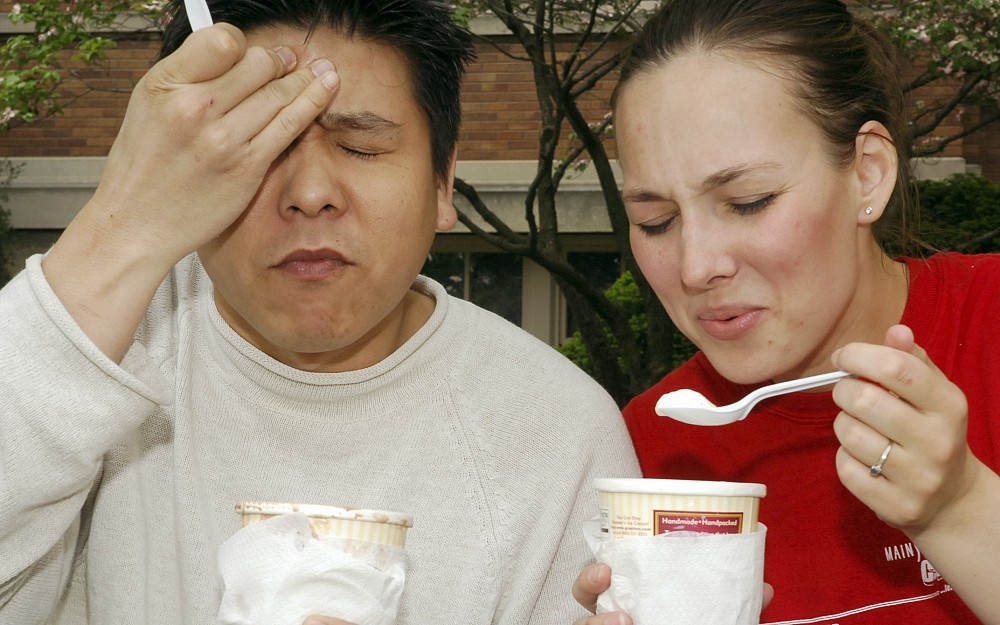
UC HEALTH LINE: Don't Let Ice Cream Make You Scream
Trees are in bud, flowers are bloomingand seasonal ice cream stores have reopened.
It must be spring!
But beware. With more ice cream and other frozen treats comes an increase in the dreaded "ice cream headache."
According to Robert Smith, MD, a headache expert at the University of Cincinnati Academic Health Center, ice cream headaches have been reported in medical literature since the 1850s.
The headache occurs when ice cream, ice or frozen food or drink is held in the top of the mouth even for just a few seconds.
The tissues in the back of the upper mouth and throat, Dr. Smith explains, contain a dense cluster of nervesknown as the trigeminal and upper cervical nervesblood vessels and muscle fibers. Overstimulating them by cold, which includes diving into icy cold water, can cause migraine, tension and cluster headaches.
For those of us not into sub-zero sports, just eating ice cream quickly can result in extreme pain in the head, soft palate and throat.
Between 30 and 40 percent of people who dont normally suffer from headache experience the ice cream version, Dr. Smith says. Migraine sufferers, particularly those who get severe attacks, are even more prone to them.
An ice cream headache generally develops rapidly as a severe stabbing pain in both temples or in the middle of the forehead. Luckily it usually doesnt last longer than five minutes.
Migraine sufferers may feel the pain on one side, and it may trigger a full-blown migraine. The fact that ice cream headaches occur more often in migraine patients suggests that local throat stimulation penetrates deep into the nervous system.
The best way to prevent ice cream headaches and related migraines, says Dr. Smith, is to avoid large mouthfuls of ice cream or cold drinks.
"Eat slowly and exercise caution while eating ice cream, especially if youre a migraine sufferer," he says.
Founder of UCs first headache center, Dr. Smith, now professor emeritus of family medicine, has conducted 30 years of headache research.

Robert Smith, MD, founder of the UC Headache Center
Tags
Related Stories
UC study: Brain organ plays key role in adult neurogenesis
July 2, 2024
The University of Cincinnati has published research in the Proceedings of the National Academy of Sciences that found the choroid plexus and cerebrospinal fluid play a key role in maintaining a pool of newly born neurons to repair the adult brain after injury.
Put down that beer; it's not a tanning lotion
July 1, 2024
The University of Cincinnati's Kelly Dobos joined WVXU's Cincinnati Edition to discuss what's fact and what's myth when it comes to sunscreen use, different kinds of sunscreen and a social media recommendation to use beer on your skin to help get a tan.
Cincinnati researchers want to know if MRIs can work better
June 28, 2024
WVXU and the Cincinnati Business Courier highlighted a new collaboration between the University of Cincinnati College of Medicine, UC Health GE HealthCare, JobsOhio, REDI Cincinnati and Cincinnati Children’s to create an MRI Research and Development Center of Excellence located on UC’s medical campus.
